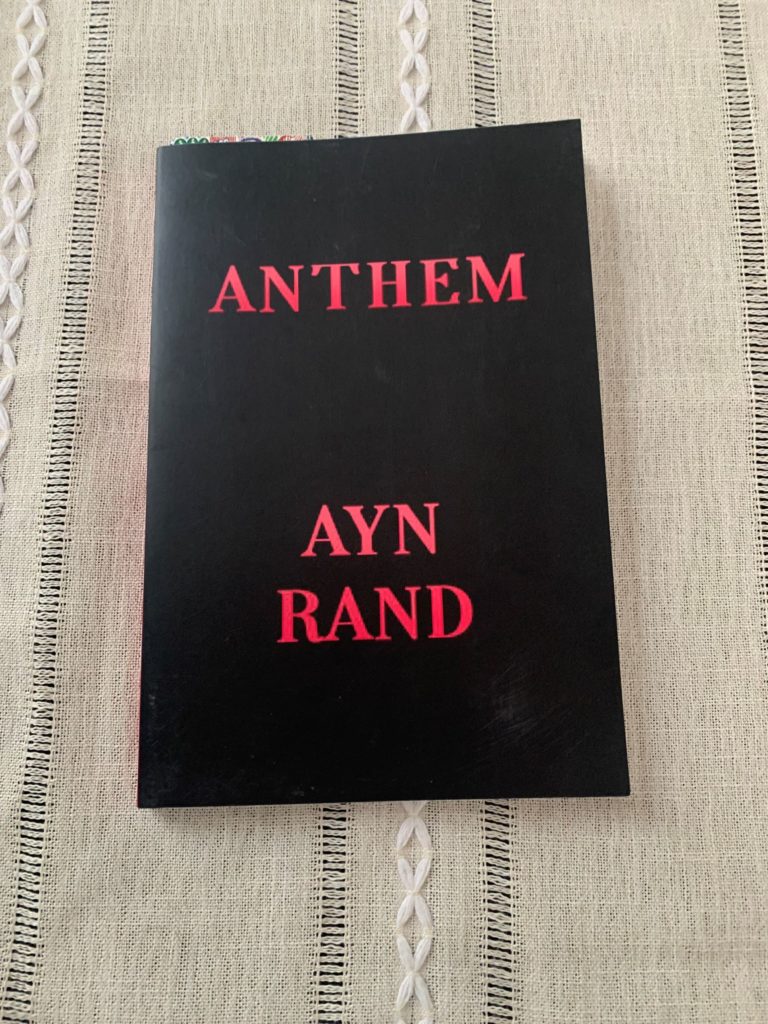I probably could have written this conclusion last week. I kept moving ideas and sentences into this post because I thought that they were too broad for just analyzing the last three chapters. But, I wasn’t totally ready to move on so here we are.

It should be clear that I am a fan of Rand’s work and the Objectivist movement. This books is a short and concise version of the very same message in Atlas Shrugged. Even some of the same phrasing was used. I felt like I was reading an abridged version or even a chapter of Atlas Shrugged, some of those were pretty long.
What to say about this book? I think that I will use a series of comparisons to do that. I would say that if you have never read or don’t know Rand, read this book first. If it turns out that you like the message, then move on to Atlas Shrugged. I kind of feel like I invested so much time into Atlas Shrugged that this was just a re-run of that story and message.
If I look at Anthem versus We, both had their idiosyncrasies. I think that the Anthem story was easier to follow minus the third person, plural language. I know that was done deliberately but I definitely found myself having to re-read things multiple times because I got sucked into this ‘who else is in this conversation?’ mode. By contrast, We often had gaps in the story line that left me guessing at what is actually happening.
I suppose that the reader needs to employ suspended animation for any of these dystopian stories. For me, it is not the flying cars or talking animals but the little things. For instance the source of the energy for the lightbulb in this book or the perfectly furnished home that exists in the middle of the forest that the character stumbles on for happily ever after that bothers me. My mind can take a leap to the non-existent but I have a hard time with the unbelievable.
Ultimately, I have to rank this below Atlas Shrugged. But I suspect that if circumstances would have been different, it would have been the other way. If you recall that review, I felt that book was way too long. It is not the length of the book per se that I mark it down, just the fact that it is the same story and the little nuances that didn’t seem to be in Atlas Shrugged. Maybe Fountainhead will be just right?
End Your Programming Routine: Let me bottom line this. If you have read Atlas Shrugged, skip this book. If you had read nothing from Rand, definitely read this book for the Objectivist point of view. Looking ahead to next week the book is going to be “Slaughterhouse Five” by Kurt Vonnegut. I have tentatively planned to cover two chapters a week. So get reading…
Recent Comments